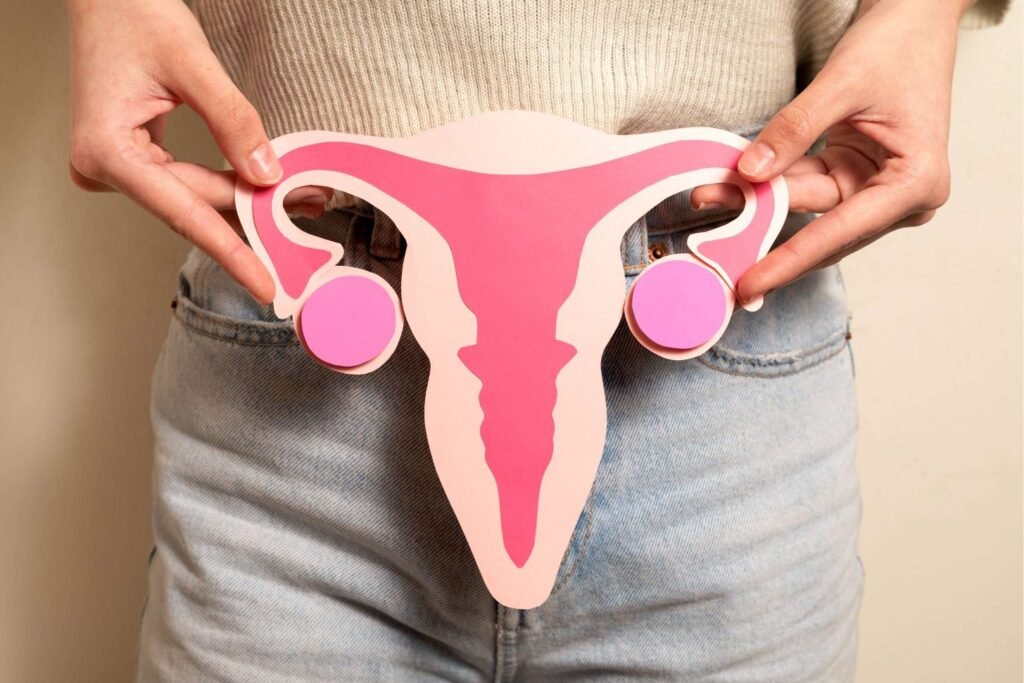What are the Symptoms of PCOS?
Polycystic ovary syndrome (PCOS) is a hormonal disorder common among women of reproductive age. PCOS is a hormonal disorder that commonly results from cysts in the ovaries. Cysts lead to the ovaries failing to release eggs regularly, leading to irregular periods. Not all women with PCOS have all of the symptoms, and each sign can vary from mild to severe. In many women, the only symptoms are menstrual problems or a failure to conceive. The exact cause of polycystic ovary syndrome (PCOS) is unknown, but it’s thought to be related to abnormal hormone levels. We will learn how does PCOS affect fertility, the common symptoms of it, and what are the treatments of PCOS.

What are the Common Symptoms of PCOS?
- Irregular periods or Lack of periods
- Difficulty in getting conceive, recurrent miscarriage
- Excessive hair growth (hirsutism) – usually on the face, chest, back
- Weight problems – being overweight, rapid weight gain
- Hair loss
- Skin problems
- Depression and mood changes
- Multiple, small cysts in the ovaries
Women with this condition have many cysts in their ovaries. An overproduction of hormones called androgens creates these cysts, and this ailment does not let the ovaries from functioning correctly.
What are the Causes of PCOS?
Experts do not know the exact causes of PCOS, but it may involve genetic factors. Along with a genetic link, too much insulin also increases testosterone production, which leads to some PCOS symptoms.

How Does PCOS Affect Fertility?
PCOS can affect a person’s fertility in different ways. Ovulation problems are usually the primary cause of infertility in women with PCOS. Ovulation may not occur due to an increase in testosterone production or because follicles on the ovaries do not mature.
Even if ovulation occurs, an imbalance in hormones may prevent the uterus lining from developing correctly to allow for implantation of the mature egg. Due to unbalanced hormones, ovulation and menstruation can be irregular, and unpredictable menstrual cycles can make it difficult to get pregnant.
When to see a doctor?
Anyone concerned that about PCOS affecting fertility should see a doctor. Even if a woman does not wish to become pregnant, getting an early diagnosis of PCOS can help to prevent complications.
If a woman becomes pregnant, it is also essential to know if PCOS is present, as studies have found a higher risk of pregnancy complications.
These complications can include:
- Gestational diabetes
- Premature delivery
- High blood pressure during pregnancy

What is the Treatment for PCOS?
Currently, there is no cure for PCOS. However, treatment can increase the chances of conceiving in those who wish to become pregnant, and it can also help people manage their symptoms.
What are the treatments for PCOS symptoms?
- Birth control pills
- Insulin-sensitizing drugs
- In the case of diabetes
- Exercise and healthful eating
If a woman wishes to become pregnant, a doctor may prescribe medications to regulate menstrual periods and encourage ovulation. Surgery may be an option if the drug does not improve fertility.
Laparoscopic ovarian drilling is a surgical option. In this procedure, the surgeon makes minor cuts in the abdomen and inserts a needle with an electrical current. They use the electric current to destroy a small amount of tissue that produces testosterone on the ovary. Decreasing testosterone levels may allow regular ovulation to occur. Following health lifestyle tips that can help increase fertility like weight control, stress management, diet food.


